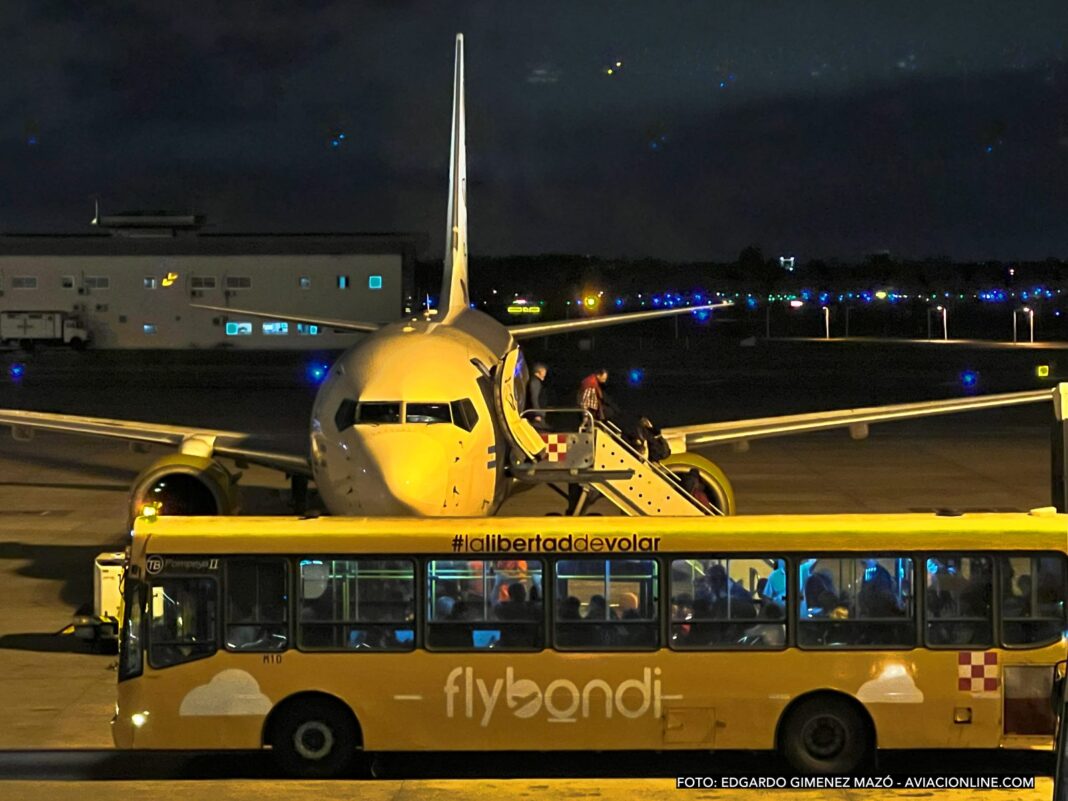As the strike day declared by APA, UPSA, and APLA unfolds, Flybondi continues to transport passengers, despite the six cancellations it was forced to make.
At the time this article is published, the company had completed 65% of its flights and transported 8,300 of the 12,500 passengers expected for the day.
A frequent question on this particular day of operations -and on other strike days, it’s worth mentioning- is: why is Flybondi operating while other companies had to cancel their activities for the day? The key lies in the handling.
Beyond crews and airplanes, there is a key component in air operations: the “ground side,” or the team that provides assistance to the aircraft on the platform.
In Argentina, regulations allow a company to provide its own platform service or to hire a third party to assist it.
Flybondi chose to provide the service to itself at nearly all the airports where it operates, except in Ushuaia, Calafate, and Comodoro Rivadavia. At these terminals, the company hired Intercargo, which called for the national strike and did not perform tasks.
There’s another airport where Flybondi depends on Intercargo: Aeroparque, where it has no option but to use ramp services.
Therefore, the company relocates to Ezeiza the flights it can, and in those where it depends on ITC, it was forced to cancel or reschedule.
The demand to choose in Aeroparque is long-standing and intensifies with each strike. Mauricio Sana, CEO of Flybondi, expressed his views on X regarding this matter.
Nuevamente, por el #ParoAeronauticos, trasladamos toda nuestra operación de hoy al Aeropuerto de Ezeiza. Gracias a eso, más de 12.500 personas van a poder viajar. A esta hora ya volaron más de 8.200 personas.
¿Por qué si somos #Aeronauticos podemos hacerlo? ???????? pic.twitter.com/HWbegmB0uN— Mauricio Sana (@mauriciosanaok) February 28, 2024
One of the expectations from the change of government was precisely the liberalization of the ramp service, and it wouldn’t be strange if the Milei administration moves forward in this direction if the DNU is not halted.
If the conflict escalates, Intercargo’s situation will be complex because it will intensify the claim and pressure to change the rules of the game at the country’s main airport. An unintended consequence for the state-owned company, but perhaps unavoidable.






